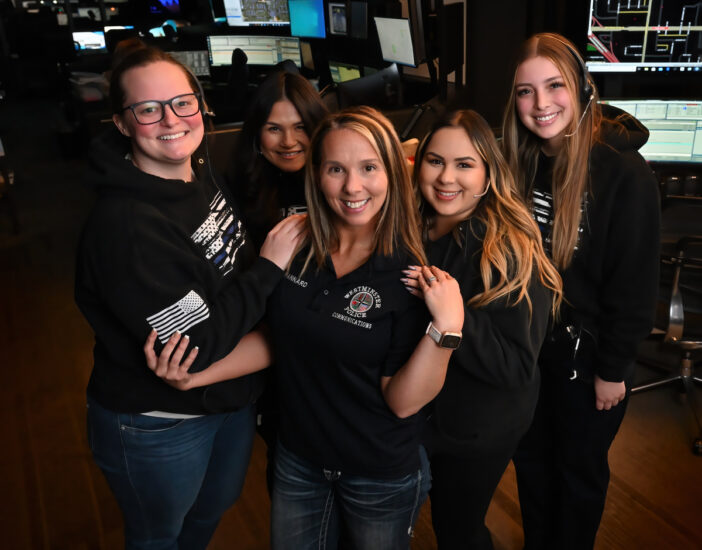A call comes in about an elderly man who is covered in blood walking along the sidewalk in an apparent daze.
At the Dispatch Center at the Westminster Police Department, Kristi Gonsalves takes the call. She quickly gathers information from a concerned caller: the elderly man’s location, the direction he is walking, his height, weight, race, and clothing. Gonsalves’ hands fly across a keyboard inputting information while at the same time she scans a city map to pinpoint the location.
As Gonsalves handles the call, Allysa Markulin listens and directs officers to the site on a separate line as she explains the situation to the officers.
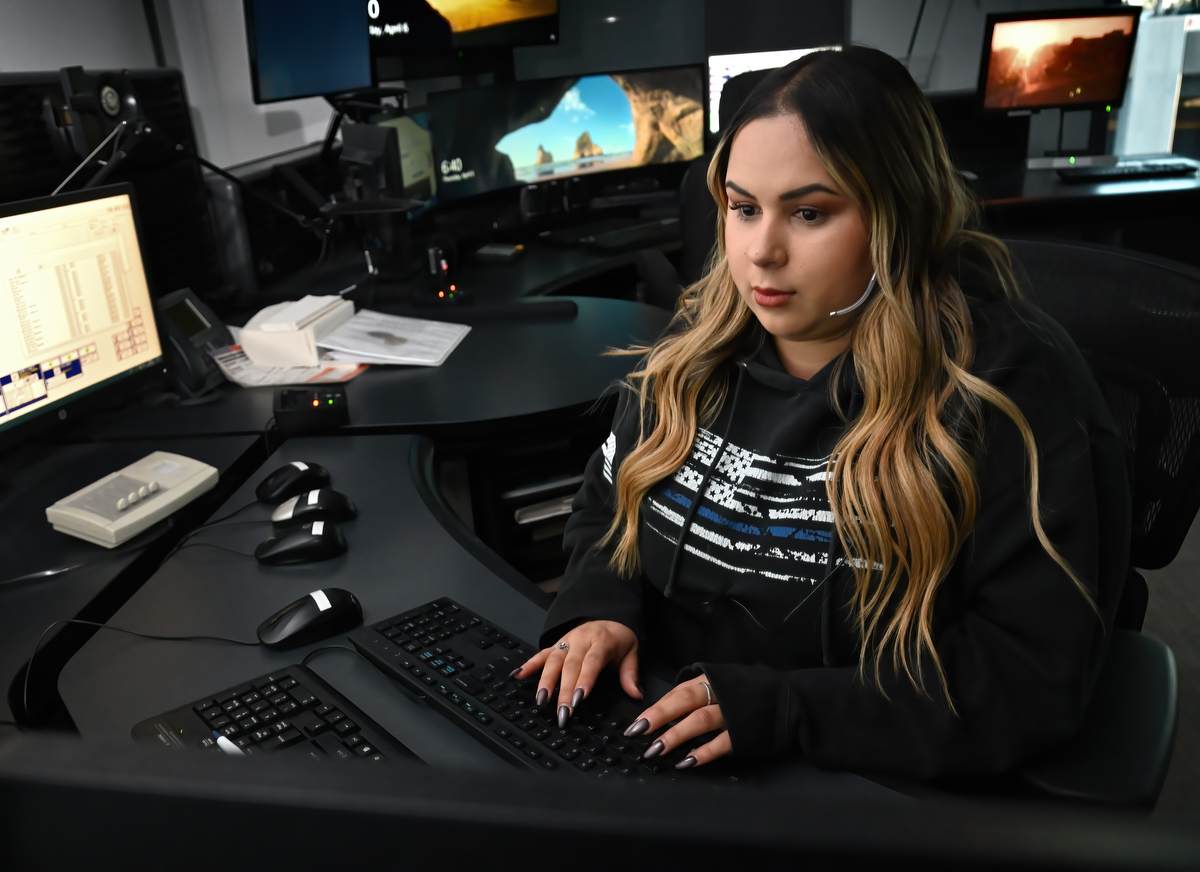
Police Dispatcher Jasmine Camacho of the Westminster Police Department.
Photo by Steven Georges/Behind the Badge
Because Gonsalves, one of three recent hires to the department, is still in training, Melorie Gradilla listens in case Gonsalves needs help. The call goes smoothly and police arrive to conduct a welfare check on the man.
When Gonsalves takes a quick break, Jasmine Camacho, who is in the back-up chair, fields three calls in less than 15 minutes, one from a landlord who wants Camacho to send police to collect rent from a tenant, another from a man complaining about food being sold from a parking lot, and another about a minor traffic accident. In each case she directs callers to the appropriate sources to handle their complaints and concerns.
Such is the life of a Public Safety Telecommunicator, or dispatcher, the person who answers the phone when callers dial 911 in an emergency or call the police department after hours.
Each year, during the second week of April (the 9th to the 15th this year), cities and police departments celebrate National Public Safety Telecommunicators Week honoring dispatchers.
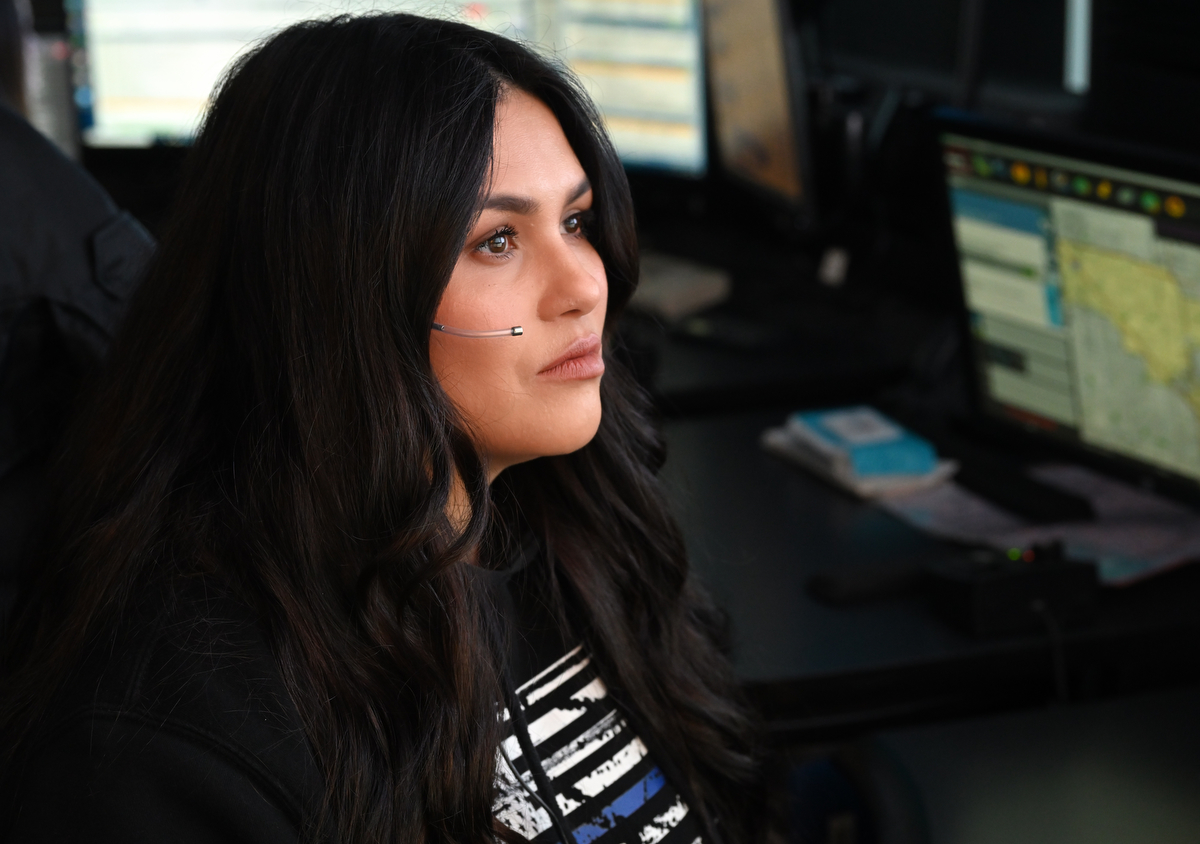
Police Dispatcher Melorie Gradilla of the Westminster Police Department.
Photo by Steven Georges/Behind the Badge
Westminster recognized the Westminster Dispatch officers with a proclamation at its City Council meeting on Wednesday, April 5.
Dispatchers, who are non-sworn police personnel, are integral members of the police department. Their mission is two-pronged.
“We’re there to be their lifeline,” says Communication Supervisor Kristen Kannard, who has been at the job for 18 years, the past three as a supervisor.
“I help make sure officers get home safe to their families,” said Camacho, who often provides critical information to police as they enter potentially hazardous situations.
The public safety dispatchers also clear 911 calls for non-emergencies so dispatchers can handle the critical parts of their job when needed.
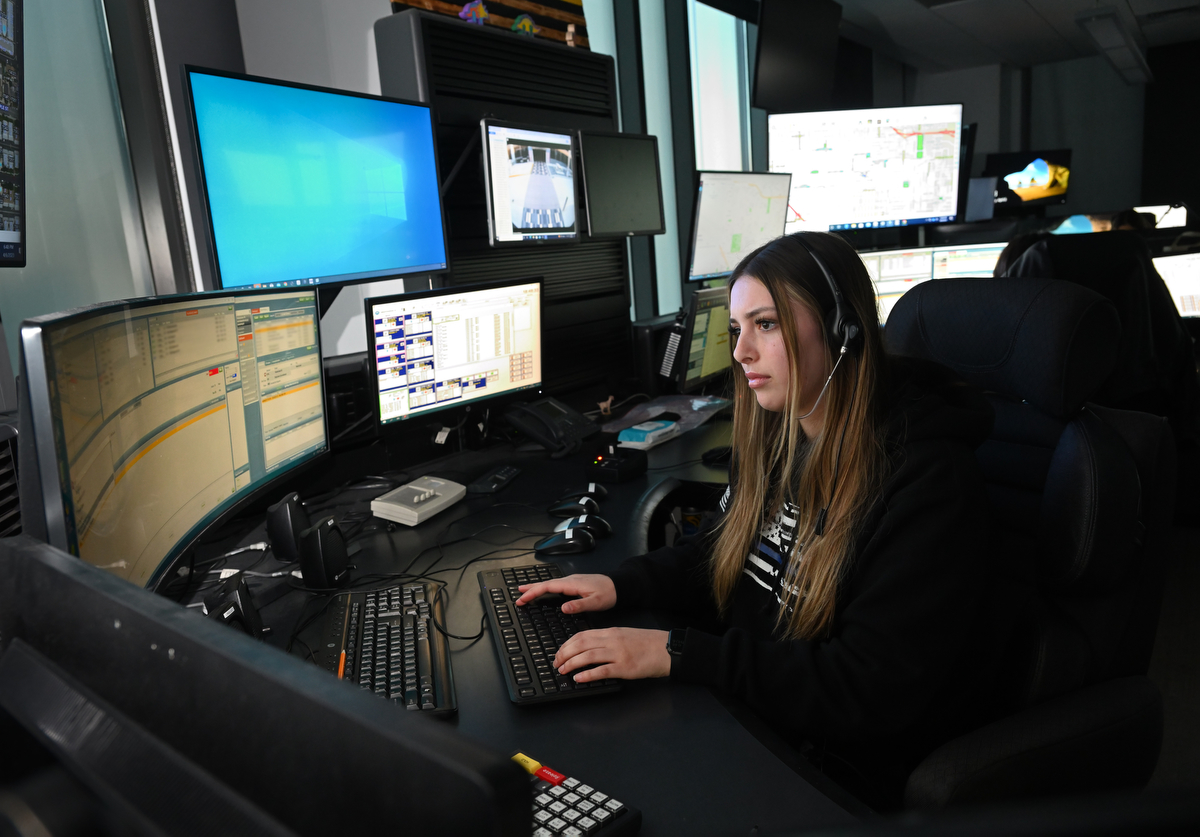
Police Dispatcher Kristi Gonsalves of the Westminster Police Department.
Photo by Steven Georges/Behind the Badge
Kannard, who is accustomed to people misusing 911, remembers one particularly galling instance. She was helping a distraught rape victim when another caller used the emergency line to report that someone had parked in their parking spot.
Heavy volume
In 2022, Westminster Police Department dispatchers received 126,406 calls, of which 38,699 were to 911. That’s an average of more than 346 total calls per day and 106 911 calls per day.
In the United States, more than 240 million calls are made to 911 annually, more than 658,000 per day, according to the National Emergency Numbers Association. Of those calls, 80 percent are from mobile devices.
At the Westminster Police Department, the Dispatch Center is open 24 hours a day all week. Three dispatchers work from 8 a.m. to midnight daily, and two work the graveyard shift from midnight to 8 a.m. Dispatchers work three 12-hour shifts per week, plus an extra eight-hour shift every two weeks. Until three new dispatchers were hired earlier this year, Westminster was below its allotment of 13, meaning a hectic schedule of overtime and holidays.
Trainees are required to have eight to nine months of on-the-job training, after two weeks of classroom learning, meaning a regular dispatcher must monitor their work.
Camacho says there will still be plenty of overtime to go around, although the number of mandatory holiday hours should be reduced. Looking at her schedule, Markulin said she was slated for 32 hours of overtime in April.
Despite the hectic schedule, dispatchers feel a calling to the work and enjoy what a shift can bring. Each dispatcher has stories of high, sometimes gut-wrenching drama, as they witness tragedies in real time via phone.
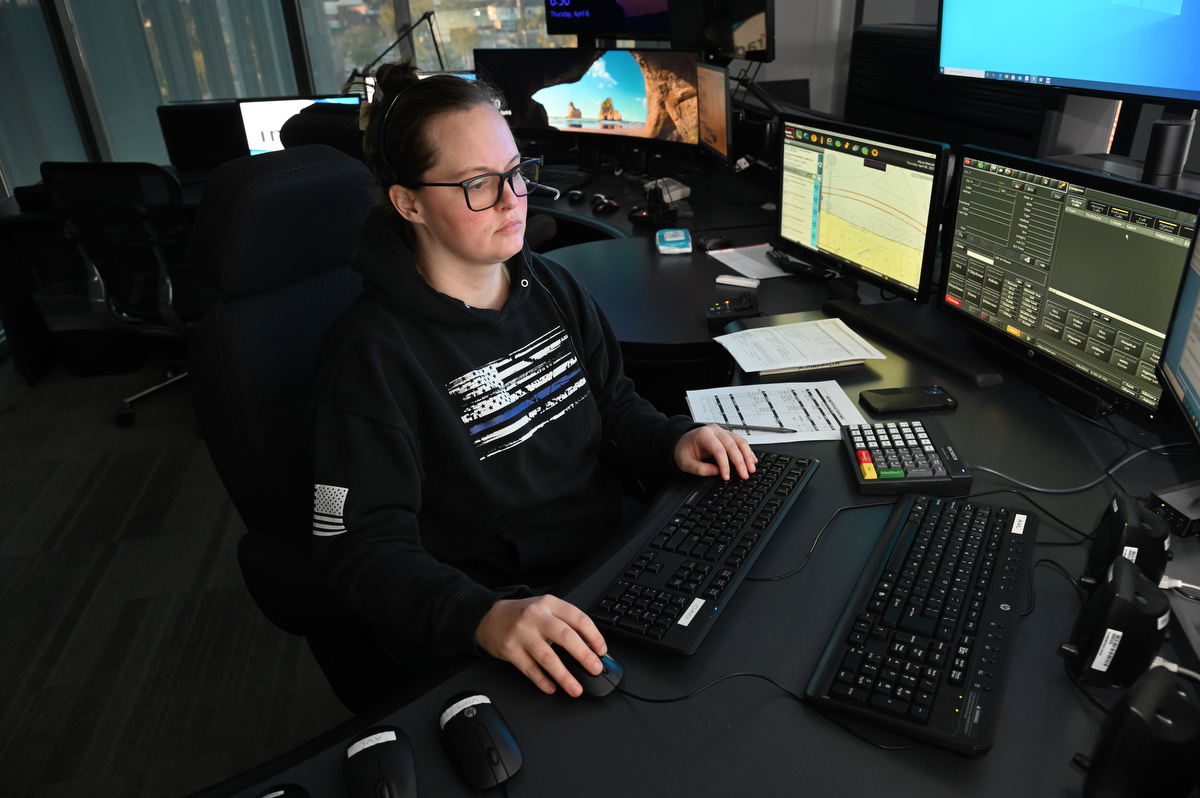
Police Dispatcher Allysa Markulin of the Westminster Police Department.
Photo by Steven Georges/Behind the Badge
Kannard remembers being on the radio, meaning she was directing police on the scene, when a woman had stabbed her two children. She recalls talking to a frightened 11-year-old who called while hiding in a closet as her father beat her mother. Kannard kept the girl on the phone, trying to reassure her and praise her for doing the right thing, as they waited for police to arrive.
Markulin has been a dispatcher at Westminster for two years after stints in San Diego and recently was on the phone for her first officer-involved shooting. She recalls a call from a frantic mom whose child had been hit by a car.
Camacho recently handled a call from a person threatening to shoot up a school. Although that call turned out to be a hoax, it didn’t diminish the drama at the time.
“Your adrenaline gets so high,” Markulin said. After tragic phone calls, Markulin said counselors are available.
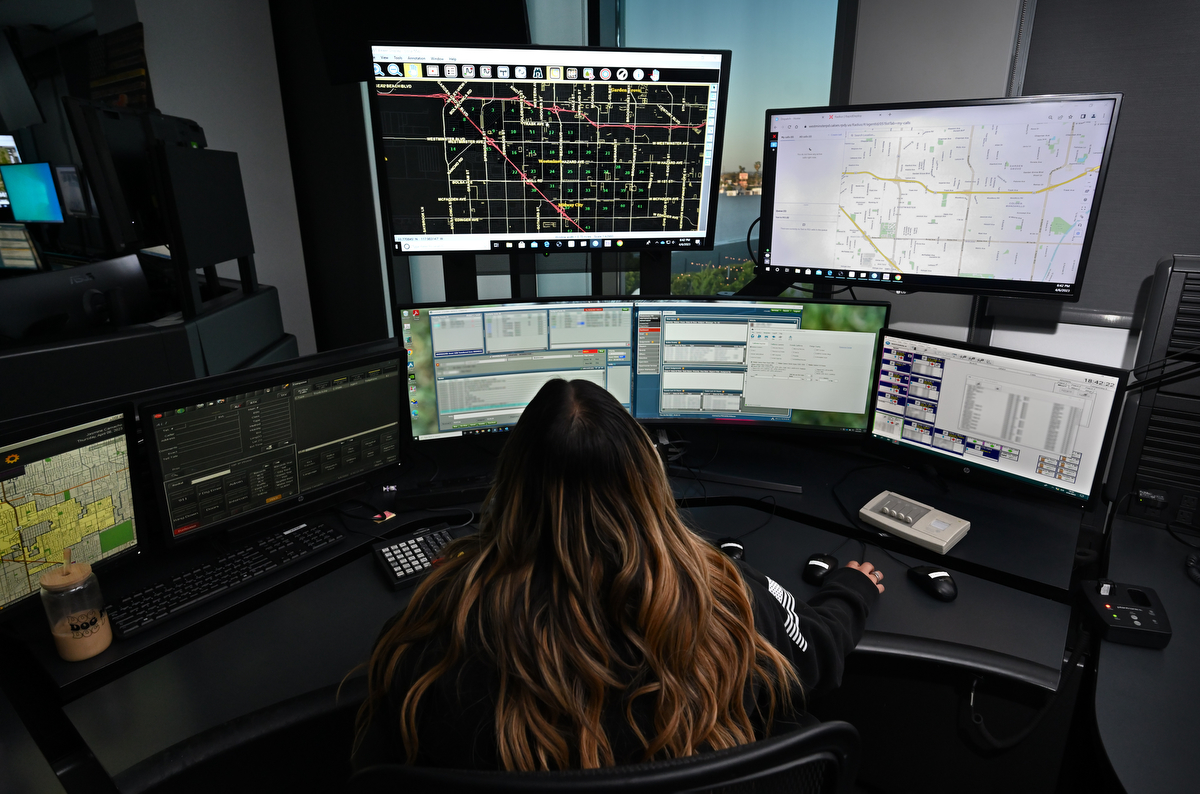
Police Dispatcher Jasmine Camacho of the Westminster Police Department.
Photo by Steven Georges/Behind the Badge
Kannard said dispatchers can sometimes experience post traumatic stress disorder symptoms.
“Sometimes when a call strikes close to home, they’re definitely traumatic,” Kannard said.
And yet, it is the dispatcher’s job to maintain calm amid chaos, dissect situations, and direct the response, to be alternately authoritative and empathetic.
Not all gloom and doom
Although the potential for tragedy is ever present, it is certainly not the bulk of the job, and the rest keeps the dispatchers alert and engaged.
“I really enjoy it, there’s so much to learn,” said Gonsalves, who joined after a short career selling real estate. “Police work always intrigued me, although I never wanted to be an officer.”
Sitting in front of an array of seven screens that display maps, aerial views of the city and the deployment of officers, Gonsalves said, “It’s like being the eyes of the city.”
Gradilla, who comes from a family of law enforcement, remembers her admiration for the job her dad did. She did a sit-along with a dispatcher and had her epiphany “when I realized there was a voice behind (the police) and helping them.”
“I like not knowing what to expect,” said Kannard. “We’re helping people and doing what law enforcement is intended to do.”
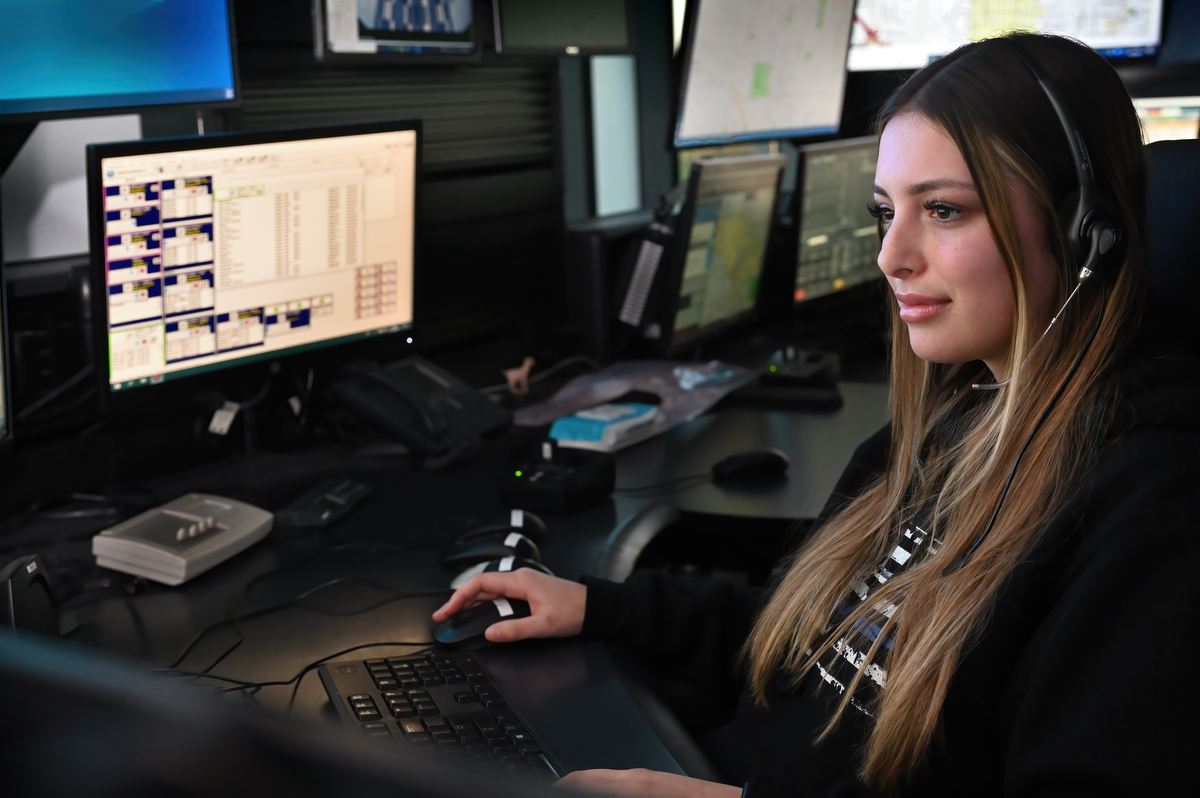
Police Dispatcher Kristi Gonsalves of the Westminster Police Department.
Photo by Steven Georges/Behind the Badge
How it all began
National Public Safety Telecommunications Week was founded in 1981 by dispatcher Patricia Anderson and Sheriff Richard Rainey of Contra Costa County in California.
As the story goes, according to “National Today,” the Sheriff of Contra Costa County decided to treat his administrative staff (then called secretaries) to lunch one afternoon, not realizing the importance of keeping administration lines open during business hours. At that time, only after-hours calls were forwarded to dispatch. On the day of the lunch, calls were pushed to dispatch beginning at 11 a.m.
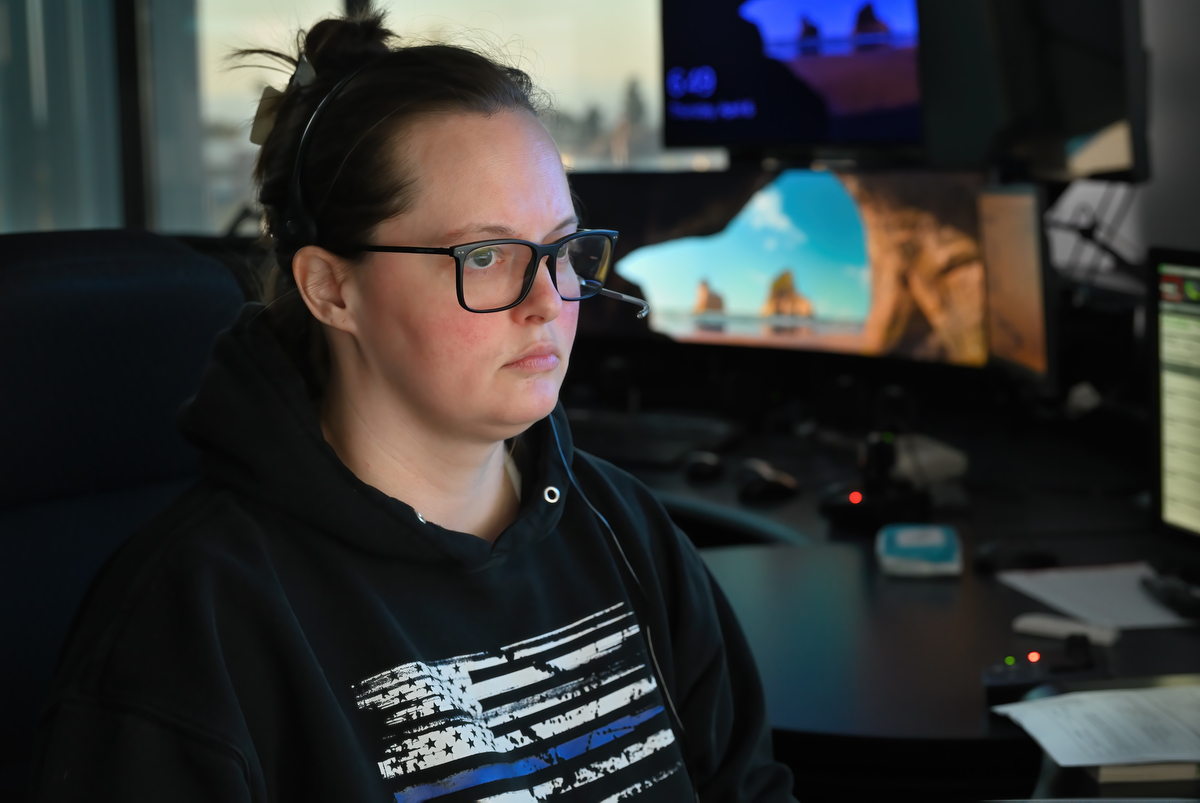
Police Dispatcher Allysa Markulin of the Westminster Police Department.
Photo by Steven Georges/Behind the Badge
The lightly staffed dispatch office was overwhelmed by the volume of calls. When Anderson, the dispatch supervisor at the time, called to ask about the problem, her call was routed back because the entire staff was literally out to lunch.
In the afternoon, Anderson walked over and gave the Sheriff an earful about what the dispatchers had gone through. An hour later, the Sheriff walked into the dispatch department with a large cake that read “Happy Dispatcher Week,” launching an initiative that has now culminated into National Public Safety Telecommunications Week.
In 1994, President BIll Clinton formalized recognition with Presidential Proclamation 6667 to honor dispatchers and other personnel in telecommunications during the second week in April.
Learn more at: https://www.westminster-ca.gov/departments/police/admin/join-wpd.
 Behind the Badge
Behind the Badge
